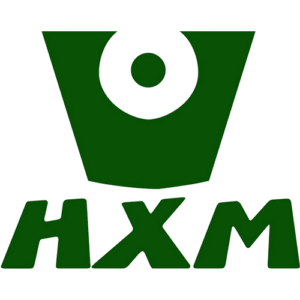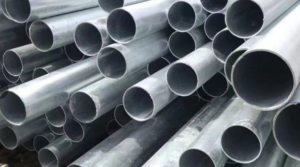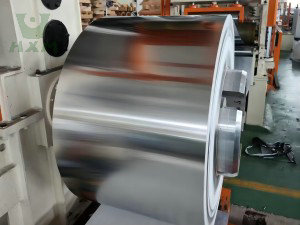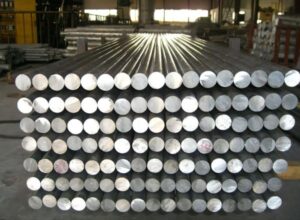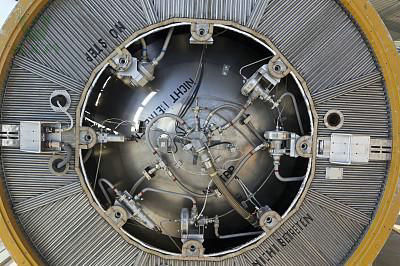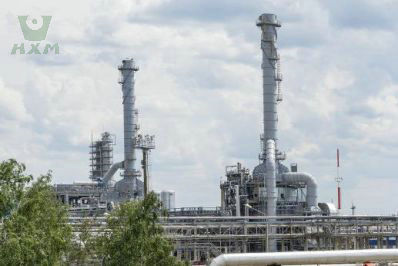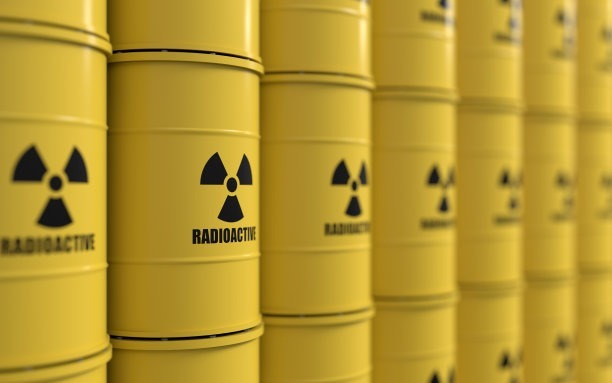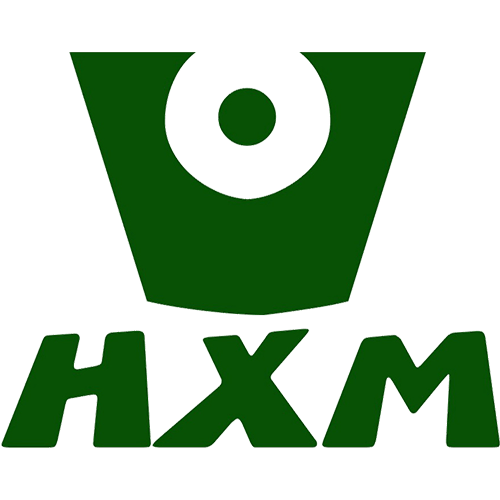Incoloy Bar / Rod
Product Grades: Incoloy 800 (UNS N08800 / W.Nr. 1.4876), Incoloy 825 (UNS N08825 / W.Nr. 2.4858), Incoloy 925 (UNS N09925 / W.Nr. 1.4529).
Implementation Standards:
- ASTM B425 for Incoloy bar and rod, which covers nickel-iron-chromium-molybdenum-copper alloys.
- ASTM B408 for rods, bars, and forgings intended for use in high temperature applications.
- ASME SB425 and ASME SB408 for specifications that match the ASTM standards but are certified for boiler and pressure vessel code applications.
Certification: ISO9001:2015.
Features:
- Superior Corrosion Resistance: Outstanding resistance to oxidation and reduction environments, with enhanced performance against chloride-ion stress-corrosion cracking.
- High Strength and Durability: Maintains excellent mechanical properties at high temperatures, ideal for demanding industrial applications.
- Excellent Resistance to Pitting, Crevice Corrosion, and Stress Corrosion Cracking: Ensures durability and longevity in harsh, corrosive environments.
Applications: Ideally suited for construction of equipment used in oil and gas extraction, chemical processing, power generation, and marine applications, where strength and corrosion resistance are crucial.
MOQ: 500 KG.
Payment Methods: T/T, L.C.
Price: Negotiable.
Incoloy Bar / Rod Supplier
Incoloy Bars, Incoloy Rods, ASME SB425 Incoloy Rods, Incoloy Alloy Bars, Incoloy Round Bars Supplier in China.
Incoloy Hot Rolled Bars, ASTM B425 Incoloy Rods, Incoloy Square Bars, Incoloy Alloy Rods Exporter, Incoloy Bars Dealer Worldwide.
Huaxiao Alloy, a leading supplier and exporter based in China, specializes in offering a comprehensive selection of Incoloy Alloy Bars and Rods to a global clientele. Renowned for their exceptional corrosion resistance and robust performance in extreme environmental conditions, our Incoloy products are crafted at cutting-edge facilities and undergo stringent quality tests to ensure they meet international standards, including ASTM and ASME.
We provide Incoloy Alloy Bars and Rods in various grades, sizes, and specifications to cater to the broad needs of diverse industries. Customization services are also available to meet specific demands, ensuring that our clients receive products that precisely fit their requirements.
Specifications for Incoloy Bar / Rod
| Category | Diameter Range | Length Range | Standard Specifications |
|---|---|---|---|
| Incoloy Bars | 6 mm – 250 mm | Up to 6000 mm or custom | ASTM B425, ASME SB425 |
| Incoloy Rods | 6 mm – 250 mm | Up to 6000 mm or custom | ASTM B425, ASME SB425 |
- Standards: ASTM B425, ASME SB425
- Sizes:
- Diameter: From 6mm up to 250mm
- Length: Up to 6000mm or tailored to customer requirements
- Forms: Round Bars, Square Bars, Hex Bars, Flat Bars
- Surface Finishes: Black, Rough Turned, Polished, Precision Ground
- Hardness Levels: Soft, Half Hard, Quarter Hard, Full Hard, Spring Hard
Product Details: Incoloy bars and rods are crafted from nickel-iron-chromium alloys that are engineered to offer superior strength and excellent corrosion resistance across a broad range of temperatures and environments. These properties make Incoloy bars and rods ideal for demanding applications in industries like chemical processing, power generation, and oil and gas.
Available incoloy Grades
We supply the following grades of Incoloy alloy bars and rods:
- Incoloy 800 (UNS N08800 / W.Nr. 1.4876): Excellent strength and resistance to oxidation and carburization in high-temperature environments.
- Incoloy 800H (UNS N08810 / W.Nr. 1.4958): Higher strength version of Incoloy 800, with enhanced creep resistance.
- Incoloy 800HT (UNS N08811 / W.Nr. 1.4959): Further enhancements to the creep resistance of Incoloy 800H, with higher carbon content and grain size control.
- Incoloy 825 (UNS N08825 / W.Nr. 2.4858): Exceptional resistance to both reducing and oxidizing acids, pitting, stress-corrosion cracking, and intergranular corrosion.
- Incoloy 925 (UNS N09925 / W.Nr. 1.4529): Combines corrosion resistance of Incoloy 825 with the strength of age-hardenable alloys.
- Incoloy 926 (UNS N08926 / W.Nr. 1.4529): Offers enhanced resistance to pitting and crevice corrosion, suitable for harsh environments.
Key Features of Incoloy Bar / Rod
Excellent Corrosion Resistance
Incoloy bars and rods excel in resisting corrosion in both oxidizing and reducing environments. This includes resistance to:
- Chloride ion stress-corrosion cracking.
- Acids such as sulfuric, phosphoric, and hydrochloric acid.
- Sea water and other saline solutions, making them ideal for marine applications.
High Temperature Capability
These materials retain their structural integrity and mechanical properties at high temperatures. They are designed to withstand the thermal stresses in furnaces, gas turbines, and other high-temperature applications without succumbing to creep or rupture.
High Strength
Incoloy bars and rods offer high tensile strength, which is maintained even under high temperature. This strength is crucial for applications requiring load-bearing capacity under harsh conditions.
Good Fabricability
Despite their strength and durability, Incoloy alloys can be effectively cut, machined, welded, and formed. This makes them versatile for manufacturing complex parts and components across various industries.
Oxidation Resistance
They are highly resistant to oxidation, particularly at elevated temperatures. This makes Incoloy bars and rods suitable for applications where oxidation is a major concern, such as in heat treatment facilities and chemical processing plants.
Resistance to Carburization and Carbonitriding
Incoloy alloys resist the absorption of carbon and nitrogen at high temperatures, which is a common issue in petrochemical environments. This resistance helps maintain the alloy’s integrity and performance over time.
These key features make Incoloy bars and rods highly sought after in industries where the materials are expected to perform under the pressure of corrosive environments and high temperatures, maintaining their integrity and contributing to the longevity and reliability of the applications they are used in.
Applications of Incoloy Bar / Rod
Incoloy bars and rods are engineered for demanding applications that require high strength, excellent corrosion resistance, and stability under extreme conditions. Here’s a closer look at some of the key applications of Incoloy bars and rods:
Oil and Gas Industry
Incoloy bars and rods are extensively used in the oil and gas sector for components like valves, pumps, shafts, and well-head parts. They are particularly valued for their corrosion resistance to sour gas and high-temperature environments, which are prevalent in oil extraction and processing.
Chemical Processing
Due to their excellent resistance to both oxidizing and reducing acids, as well as their ability to withstand corrosive environments, Incoloy bars and rods are ideal for manufacturing equipment used in chemical processing, including mixers, reactors, and storage tanks.
Power Generation
Incoloy’s ability to maintain strength at high temperatures makes it suitable for applications in power plants, particularly in superheater and reheater tubes and other components within nuclear, coal-fired, and gas turbine power plants.
Aerospace
In the aerospace industry, Incoloy bars and rods are used in constructing parts that require high strength and corrosion resistance at elevated temperatures. Typical applications include exhaust systems and engine components.
Marine Engineering
The excellent corrosion resistance of Incoloy against seawater and marine atmospheric conditions makes it an ideal choice for parts in shipbuilding and repair, such as propeller shafts, marine fasteners, and fixtures exposed to saltwater.
Automotive
Incoloy rods are used in automotive applications that require materials capable of enduring harsh environments without corroding or losing strength, such as in exhaust systems and turbocharger rotors.
Construction
Incoloy bars are utilized in the construction industry for applications that demand materials with high strength and corrosion resistance, especially in structures exposed to harsh environmental conditions.
Pollution Control
Incoloy rods are used in pollution control systems for their ability to withstand acidic environments and high temperatures, commonly found in flue gas desulfurization systems and other emission control systems.
These applications demonstrate the versatility of Incoloy bars and rods, highlighting their capability to perform reliably in environments that are challenging in terms of both corrosion and temperature.
Packaging & Delivery
Packaging Options:
- Bundles with plastic wrapping for weather protection.
- Wooden crates or pallets for safe transportation.
- Custom packaging available based on client requirements.
Delivery Time: 10-25 days or faster if stock is available.
Why Choose Huaxiao Alloy?
- Made in China: Leading supplier of Incoloy bars and rods with global market recognition and expertise.
- Wide Grade Selection: Offering a comprehensive range of Incoloy grades with customizable diameters and lengths.
- Stringent Quality Control: Strict adherence to ASTM and ASME standards, ensuring premium product quality.
- Global Export Network: Trusted partner for clients in Europe, the Americas, the Middle East, and Asia.
- Competitive Pricing: High-quality Incoloy bars and rods at industry-leading prices.
Contact us today for more details or to request a quote for Incoloy Bar and Rod!
Get Quote Now for Incoloy Bar / Rod
FAQs
Composition:
- INCOLOY: A nickel-iron-chromium alloy designed for corrosion and high-temperature resistance.
- Titanium: A pure metal or alloy known for its excellent strength-to-weight ratio and corrosion resistance, particularly in chloride-rich environments.
Corrosion Resistance:
- INCOLOY: Resists oxidation, carburization, and stress-corrosion cracking in high-temperature environments.
- Titanium: Exceptional resistance to seawater and a wide range of acids but less effective in high-temperature environments compared to INCOLOY.
Weight and Strength:
- INCOLOY: Heavier and offers high temperature stability and strength.
- Titanium: Lighter with high tensile strength, ideal for weight-sensitive applications.
Applications:
- INCOLOY: Chemical processing, heat exchangers, and power plants.
- Titanium: Aerospace, marine, and biomedical industries.
Conclusion: INCOLOY is preferred for high-temperature and chemical-resistant applications, while titanium is better for lightweight, corrosion-resistant designs.
No, Inconel and INCOLOY are distinct nickel-based alloys:
Inconel:
- Higher nickel content (50-72%).
- Exceptional resistance to extreme heat and aggressive oxidation.
- Ideal for turbines, jet engines, and heat exchangers.
INCOLOY:
- Lower nickel content, balanced with iron and chromium.
- Optimized for corrosion resistance in moderately high-temperature environments.
- Common in chemical processing, marine applications, and pollution control systems.
Conclusion: Inconel is better for extreme heat environments, while INCOLOY is suited for moderate heat and chemical resistance.
INCOLOY 800 (UNS N08800):
- Focused on high-temperature strength and resistance to oxidation and carburization.
- Commonly used in furnace components, heat exchangers, and power plants.
INCOLOY 825 (UNS N08825):
- Primarily designed for corrosion resistance in highly aggressive environments, such as sulfuric and phosphoric acids.
- Used in chemical processing, marine environments, and pollution control systems.
Key Difference: INCOLOY 800 is optimized for high-temperature stability, while INCOLOY 825 is specialized for superior corrosion resistance.
INCOLOY 825 (UNS N08825):
- Offers excellent corrosion resistance to acids and oxidizing agents.
- Common in chemical processing and marine environments.
INCOLOY 925 (UNS N09925):
- Combines the corrosion resistance of 825 with the added strength of a precipitation-hardenable alloy.
- Used in oil and gas applications where both strength and corrosion resistance are critical.
Key Difference: INCOLOY 825 focuses on corrosion resistance, while INCOLOY 925 combines corrosion resistance with enhanced mechanical strength.
Advantages of INCOLOY:
- Superior corrosion resistance, especially in harsh environments.
- High strength and performance at elevated temperatures.
- Resistant to stress-corrosion cracking and pitting.
Advantages of Copper:
- Exceptional electrical and thermal conductivity.
- Good corrosion resistance in non-aggressive environments.
Conclusion: INCOLOY is better for high-temperature and aggressive chemical environments, while copper is ideal for electrical, thermal, and moderate corrosion-resistant applications.
INCOLOY is used in applications requiring high strength and corrosion resistance, including:
- Chemical Processing: Reactors, heat exchangers, and piping systems.
- Power Generation: Steam generators and superheater tubing.
- Marine Engineering: Seawater piping and heat exchangers.
- Oil and Gas: Downhole tubing, pipelines, and sour gas processing.
- Aerospace: Engine exhaust systems and high-temperature components.
- Pollution Control: Flue gas desulfurization systems and scrubbers.
No, INCOLOY and Monel are different nickel-based alloys:
INCOLOY:
- Nickel-iron-chromium alloy.
- Designed for corrosion and heat resistance in high-temperature environments.
Monel:
- Nickel-copper alloy with high resistance to seawater and salt solutions.
- Primarily used in marine applications, chemical processing, and pump shafts.
Key Difference: INCOLOY is better for high-temperature and acidic environments, while Monel excels in marine and chloride-rich conditions.
